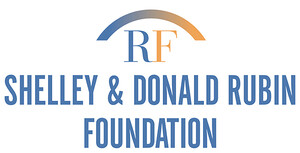November 21, 2019–March 8, 2020
The 8th Floor
17 West 17th Street
New York, NY 10011
USA
The Shelley & Donald Rubin Foundation is pleased to present Relational Economies: Labor over Capital, an exhibition that reflects on the impacts of economic crises on different parts of the world and sectors of society, prompting a dialogue about alternatives to the trappings of capitalism. Artists in the exhibition include mayfield brooks, Tania Candiani, Anetta Mona Chisa & Lucia Tkáčová, Stephanie Syjuco, and Stefanos Tsivopoulos. An opening reception will take place on Thursday, November 21, from 6 to 8pm at the Rubin Foundation’s exhibition space, The 8th Floor, in New York City.
The third installment of Revolutionary Cycles, a two-year series of exhibitions that explore art’s social and political potential in uncertain times, Relational Economies examines how the economic outcomes of global capitalism transcend borders, while worker’s rights and compensation continue to deteriorate. The artworks in the exhibition collectively focus on the hierarchies of labor and economic status, choreographies of work, the interrelationships between disparate wealth positions, alternative economies and currencies, and the ways in which labor conditions contribute to culture at large.
Tania Candiani’s practice incorporates craft, labor, tradition, synesthesia, rhythm, and translation, with a particular focus on projects that utilize historical records and archives as materials. Her recent video, Del Sonido de la labor. Cantos de trabajo / From the sound of labor. Work singing (2019) takes the viewer on a journey through the rural landscape of a former plantation. Recalling the sonic elements associated with labor, the work is set within the sugar cane fields and slave barracks of Trinidad, Cuba. Restaging the performance of these songs, traditionally sung by slaves, conjures the brutality of slavery and functions as a defiant act of remembrance.
Performance artist mayfield brooks also reflects on the history of slavery in the Americas, by expanding upon Viewing Hours, a piece originally staged at The Kitchen in April 2019. Viewing Hours will take the form of a wake, where gallery visitors bear witness to the implied decomposition of the artist’s own body, in recognition of the urgent need for reparations. Presented as both a ‘zine and a subtly moving performance, Viewing Hours builds on brooks’ practice of “improvising while black” to spark awareness and dialogue about the long history of theft—of labor, life, and land—in the context of discussions about reparations.
Stephanie Syjuco’s FREE TEXTS (2012), is an ongoing project involving the distribution of texts crowdsourced from different publications and curated around themes such as social justice, activism, open source culture, copyright, empire, capitalism, feminism, and art. Installed as a collection of tear-off flyers, the piece invites viewers to pull tabs advertising URLs, from which they can download readings related to historical and political movements. Conceived to engage with a specific exhibition theme, Syjuco’s process is designed to “pay forward” the knowledge-base of its distinct concerns and the exhibitions and institutions it involves. FREE TEXTS operates as an alternative distribution point, one that challenges the conventions of copyright, suggesting that the circulation of knowledge is unruly and, at times, unregulated.
Relational Economies will feature a new iteration of Stefanos Tsivopoulos’ History Zero (2013), a three-channel video installation accompanied by a reimagined version of his Alternative Currencies: An Archive and a Manifesto. Both components of the project examine disparate notions of monetary value in the context of global economic instability. The films portray three characters who have distinctly different relationships to material wealth, exploring the impact of money on human interactions. Tsivopoulos has expanded upon his archive of Alternative Currencies, placing it within the video installation to connect the political and social implications of the exchange of goods.
Working both individually and collaboratively, Anetta Mona Chisa & Lucia Tkáčová have realized projects that question gender, politics, and labor, using humor to examine institutional norms. Their piece After the Order (2006), is based on The Pyramid of the Capitalist System, a satirical cartoon from 1911 criticizing social and economic inequity. Chisa & Tkáčová playfully visualize hierarchies of economic status through an interactive, edible sculpture that seduces audiences into a collective performance fusing desire, destruction, and consumption.
Relational Economies sets the stage for an examination of the networks that shape the economic landscape of contemporary life. Through the consideration and deconstruction of how we attribute value, the artists in the exhibition collectively address the historical and societal specters, and the subtle manipulations that continue through the exchange of currency and its reinvention.
The exhibition is organized by Sara Reisman, with George Bolster and Anjuli Nanda. A program of events will be organized in conjunction with the exhibition and details will be announced soon.



